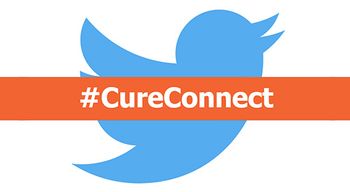
World Cancer Day is approaching. Join us on Monday's #CureConnect tweet chat to discuss how cancer has impacted your life.

World Cancer Day is approaching. Join us on Monday's #CureConnect tweet chat to discuss how cancer has impacted your life.

Breast cancer survivor discusses her upcoming prophylactic double mastectomy with reconstruction.

I am forever thankful for the care I received from my oncology care team. But I am also often frustrated by lack of knowledge for late-term effects resulting from that care.

Additional physical and mental components may seriously affect health-related quality of life in older patients with cancer.

For many cancer survivors, returning to work can be both exciting and anxiety-inducing. Knowing your rights and making a plan can help ensure a smooth transition.

Through its Centers of Excellence program, the MDS Foundation helps patients get appointments with leading experts from around the world.

Two-time cancer survivor offers ways to reduce clutter during the holidays and beyond.

Are you trying to get ready for the holidays in addition to being newly diagnosed with cancer, receiving active treatment or coping with survivorship? It’s not an easy task.

A two-time cancer survivor shares strategies that have helped her over the years with healthy eating habits and movement.

The annual mammogram can be triggering for survivors. They could use a little more TLC from the system during this annual ritual.

Try not to let cancer hinder your career.

A breast cancer survivor learns to shed her old identity and adapt to her new one.

Changing the perception of what it means to be a survivor

There are so many ideas of what it is to be strong, but what if strength lies in being honest, being vulnerable and being ourselves?

I'm hopeful and scared. Why it's OK to feel both at once when you're living with cancer.

A mantle cell lymphoma survivor discusses being a transplant patient.

Offering comfort and compassion to newly diagnosed women can be a blessing.

Sometimes I’m referred to as a cancer "survivor," but I just don’t see myself as such.

Remembering what the fear of breast cancer felt like on the day you were diagnosed is not only necessary, but valuable.

Accepting feelings of guilt is not only normal, but it's a part of life.

Holidays can be challenging, but here are a few helpful tips to surviving well.

Not all breast cancer survivors support this social media campaign.

Does the fear of recurrence ever truly end for a breast cancer survivor and how do we negate its power over us?

I’m not sure that’s the right term. Do I have a choice?

Feeling guilty about surviving cancer is a problem many face.


I realized that my concept of normal has changed, but it isn't all bad.

Tips on learning to move from cancer survivor to thriver.

“We can now say that the benefits of early palliative care can extend beyond patient outcomes and can actually positively impact family caregivers,” said Areej El-Jawahri.